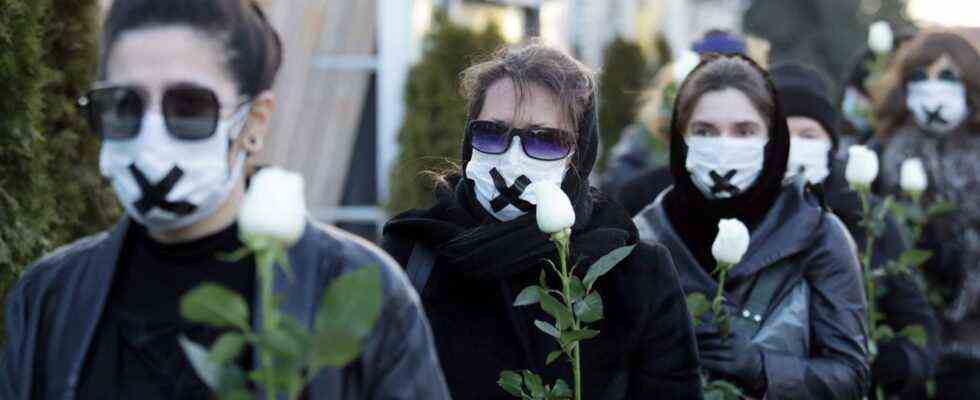As of: 08/09/2021 5:00 a.m.
The protests against the supposed re-election of long-term ruler Lukashenko a year ago changed Belarus. The regime is waging an ongoing struggle against its own people. Til today.
The calls for change have fallen silent on the streets of the Belarusian capital. The revolution controlled by the West has failed, emphasizes the ruler Alexander Lukashenko. The time of protests: over once and for all.
“The purge is in progress. Do you think it’s easy ?! Thousands work for the others. People of us whose brains have been turned off and washed for someone else’s money,” claims the ruler.
The regime takes precedence over anyone who is not on the state line. The judiciary has already initiated around 4,700 criminal proceedings. And new ones are added every day. Over 600 political prisoners are already in prisons and penal camps. “The country is turning into a large concentration camp,” says the independent Belarusian political scientist Valery Karbalevich.
“A completely different level”
Over 50 non-governmental organizations have been banned in the past few weeks. Local citizens’ initiatives as well as well-known human rights organizations. Critical media have lost their licenses. Internet platforms were classified as extremist. The legislation has been tightened.
Just showing the colors of the democracy movement, white-red-white, is a risk. Unlike in winter, even smaller groups no longer dare to demonstrate in backyards and neighborhoods. For good reason, as Karbalevich explains.
“If last year Lukashenko accused his opponents of being bandits, criminals, alcoholics, prostitutes and drug addicts, then he is now accusing them of being extremists, terrorists, fascists, and Nazis. That is a completely different level,” said the political scientist .
No longer safe in exile
Examples are set in court. Also to those who dared to challenge Lukashenko politically last year. Viktor Babariko, who would have wanted to run in the presidential election, was sentenced to 14 years in a prison camp. His campaign manager, Maria Kolesnikowa, who later led the mass protests, faces 12 years in prison. For trying to take power illegally.
The battle cry of the democracy movement – “Live Belarus” -, which rang out for months at the mass protests all over the country, can now only be heard in exile. In Lithuania, in Poland, in Ukraine. In countries that have taken in those who have fled the regime.
After the violent death of the Belarusian activist Vitaly Schischow last week in Kiev, many no longer feel safe even in exile. Opposition leader Svetlana Tichanovskaya complains that it could affect anyone.
Nothing is forgotten
Lukashenko managed to stay in power. He is not afraid of sanctions. He relies on Russia’s financial and economic aid. And on his security apparatus. But he has irrevocably lost the support of a large majority of the people.
Because nothing is forgotten. Nothing is taken. Not the dead, not the victims of torture, the detainees, those who have lost their jobs or university places or have had to pay heavy fines from their meager pensions because they took to the streets peacefully for free and fair elections and for change.
Belarus one year after Lukashenko’s “re-election”
Christina Nagel, ARD Moscow, 8/8/2021 11:46 p.m.

